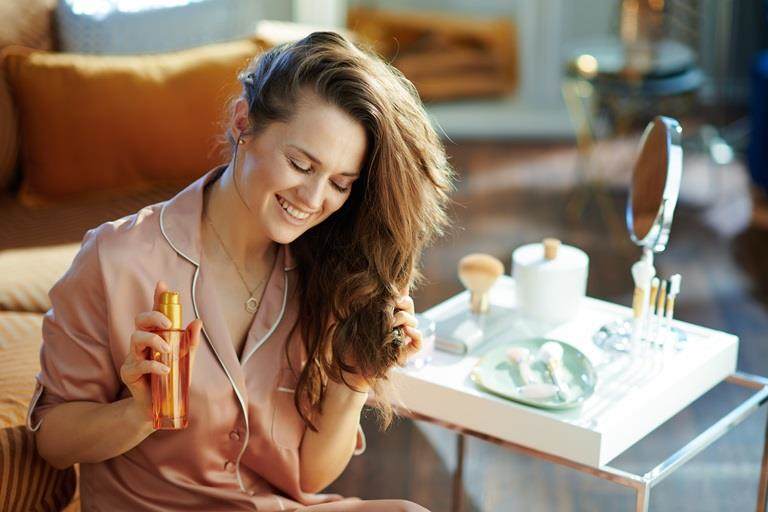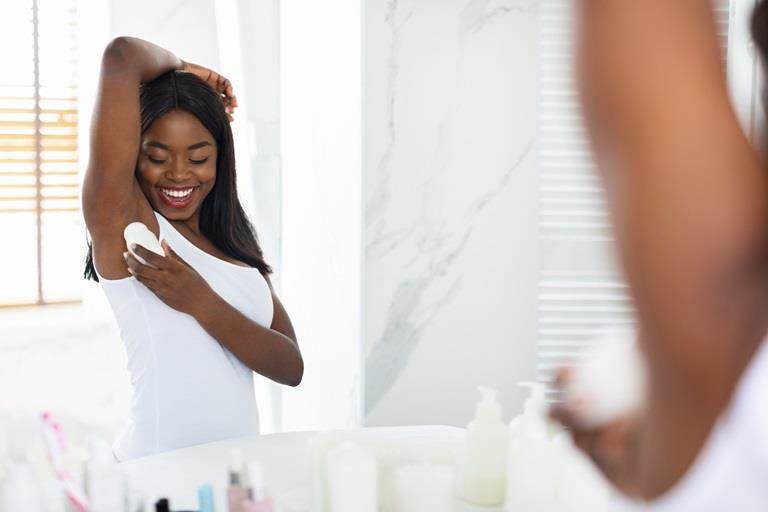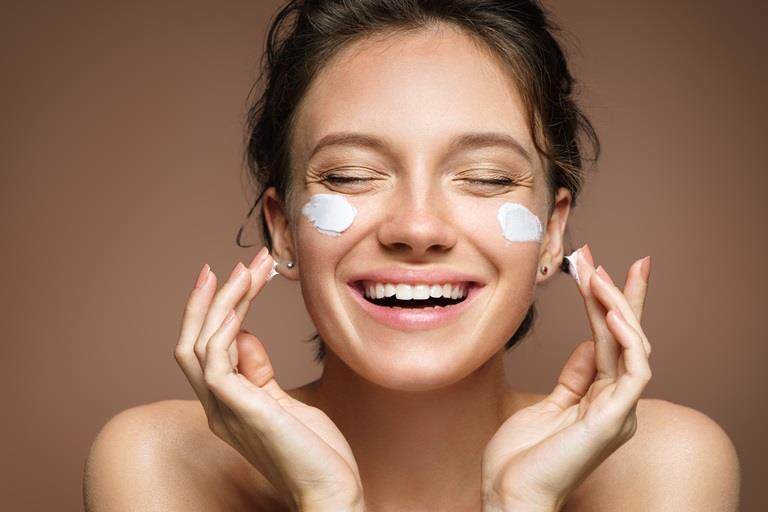A reimagined future for beauty brands and their consumers
The reimagined futures trend in beauty and personal care reflects a growing consumer desire for a brighter, more optimistic future. As people navigate an increasingly fast-paced and digital world, they yearn for experiences that bring back a sense of joy, wonder, and emotional depth. In this blog, we will explore the key trend drivers, share the ways brands and the products they offer can meet the reimagined futures trend, and provide cosmetic formulation and ingredient inspiration from our portfolio.
What is the reimagined futures trend?
At its core, the reimagined futures trend is about envisioning a positive future for ourselves. This beauty trend pushes companies to go beyond traditional transactions and connect with consumers on a deeper level. By doing so, brands can help their customers to feel part of something and inspire them with new possibilities and hope.
In addition to emotional and experiential engagement, the trend emphasises the importance of sustainability and appreciating the beauty of nature. It encourages people to spend more time outdoors and to make mindful choices.
Consumers expect beauty brands to champion inclusivity, self-expression, and community to ensure everyone feels welcome, served and seen. Products and experiences that can connect people with their own culture, heritage and a sense of who they are, as well as with those outside their own experience appeal.

When it comes to the beauty industry the reimagined futures trend can be broken down into three distinct concepts:
• Re-enchantment – Capturing consumers through a range of emotions and experiences.
• Wonder exploration – Exploring the beauty of nature and adapting product choices and routines to reduce negative impact.
• Deep reconnection – Encouraging consumers to embrace deeper connections with themselves and others.
Re-enchantment – Capturing consumers through emotions and experiences

Micro-moments of joy
In beauty, consumers are looking for products, routines and concepts that instil a sense of joy. In fact, 81% of beauty buyers actively seek out products that make them feel good while using them. (2) This could include offerings with transformative textures, interesting colours or unique application experiences.
Some brands are also launching (or relaunching) products with nostalgic features to evoke happy memories and positive curiosity for consumers in times of change. This will appeal to the 60% of French consumers who enjoy things that remind them of their past or childhood. (3)
Dark comforts
In an era where individualism and non-conformity are celebrated, brands are seeking new ways to stand out from the crowd. Offerings exploring dystopian themes and dark aesthetics are on the rise, providing an opportunity to break free from the conventional and embrace a more rebellious persona. This is inspired by themes of horror, fear, fantasy and escapism. Products often feature dark colour palettes, stark contrasts, and unconventional imagery. Black, grey, and deep reds dominate, creating a sense of mystery and intensity. (4)Sensory and texture
Although consumers continue to search for products with proven benefits, they are increasingly prioritising favourable and desirable sensory attributes. How a product feels is critical to the first experience an end user has with it and a good first impression helps with continued use. Sensory experiences can also play a key role in perceptions of quality and even efficacy. In a study, over 88% of subjects found that emollients with a smoother texture were deemed as better quality. (5)Whilst still popular, traditional textures (like creams and lotions) are taking a back seat as brands look to develop products with innovative and transformative textures that add a sense of fun and play to routines. From sticky jelly to soothing milk, getting creative with textures will allow brands to provide sensory experiences and shake off boredom. To capitalise on darker themes, ‘ick’-inducing textures, including peel-off films will appeal.
Fragrance
Consumers are in search of unique and out-of-the-ordinary fragrances, with 46% of them expressing excitement about experimenting with new ones. (6) Brands can captivate these consumers with offerings that transport them to uncharted territories and ignite their sense of exploration.The most common fragrance component groups are linked to the reimagined futures trend and are associated with escapist and imaginative themes, such as fantasy, nature, or floral. (7) Unconventional scents, including food-related fragrances, resonate well with escapists too, aligning with their desire for novelty, indulgence and sensorial satisfaction.

Instant Smooth and Shine Hair Gel-Oil

Soothing Deodorant Roller – Sage Serenity
Wonder exploration – appreciating the beauty of nature

Brands are therefore growing their sustainable product portfolios and increasingly using sustainability claims to influence purchases. Examples include reformulating to make their products, processes and profits more sustainable, offering refillable products and sustainable packaging and/or inventing multipurpose products.
Greater transparency on ingredients, processes and company credentials is also part of this trend driver. Brands should not just do or say they are being sustainable but prove it. Consumers want to know that their beauty routines are having as little negative impact on the environment as possible.
Outdoor lifestyles/geo-skincare
The physical and mental health benefits of being in nature are becoming more widely recognised and 65% of global respondents now say they are seeking out more opportunities than before to immerse themselves in nature.(1) We have therefore seen a rise in activities such as wild swimming, camping and hiking, allowing people to enjoy the outdoors and switch off from a digital focused and often intense world.However, increased exposure to the outdoors puts skin and hair at greater risk of damage from external aggressors including UV, heat and pollution. Consumers are therefore seeking protective routines and specific formulas adapted to seasonal changes or tailored to specific geographical or climatic conditions. Solutions must consider changing needs and help individuals make informed choices for their lifestyle and skin/hair type and needs.
Transparency
To assist consumers in making sustainable and more informed choices, they are seeking to understand what is in their products. It is often difficult for them to navigate ingredient lists, claims and regulations, with 69% of global consumers feeling that cost, easy access, and a lack of clarity prevent them from adopting a more sustainable lifestyle. (9)Brands can support their customers by providing clear claims and labelling, straightforward solutions and expert guidance to make decision-making easy, transparent and fun. It is important that claims are validated with 75% of Spanish consumers agreeing that beauty brands should provide more scientific evidence to validate the claims they make. (10) This transparency will foster a sense of trust between brands and consumers.
.jpg?w=768&la=en-GB&focalpointcrop=1&xratio=0&yratio=0&hash=4E0F858B13622A64DC40407E0DC8EFF9)
Pomegranate glossy lip oil
Deep reconnection – connections to ourselves and others

In the beauty space, brands can help consumers to feel that they belong by driving togetherness, inclusivity and community. Products and designs that can connect us with our own culture, heritage and sense of who we are, as well as with those outside our own experience will appeal.
Self-care
When considering wellbeing and the connection to ourselves, prioritising self-care and holistic wellness is essential. The traditional notion of beauty has expanded to encompass not only external appearance but also the deeper focus on health and internal balance.Brands should be considering self-care rituals, holistic health and mindfulness during product development and promotion. Focus on soothing ingredients, calming textures, mindful fragrances and science-backed claims in line with individual needs. Companies have an opportunity to create escapism and self-connection through their offerings.
Self-expression
As well as adopting a 'me mentality' in terms of self-care, consumers are also increasingly committed to being true to themselves and embracing who they are. This area of reconnection is about celebrating individuality, encouraging authenticity, and fostering a sense of empowerment and confidence through product and routine experimentation.Brands and their product ranges should align to consumer values and provide solutions for their personal attributes and needs, whilst encouraging them to experiment across personal care applications. In France, 47% of makeup purchasers enjoy experimenting with different makeup looks. (12)
Connection and community
Beauty retail is evolving with a blend of online and offline touchpoints and a need for more authentic and connected experiences. Pop-up shops, immersive brand spaces, and the use of augmented reality in-store is becoming more common as brands seek to engage consumers in new and innovative ways.To build further on the sense of community, consumers are increasingly focused on forming bonds with like-minded individuals and engaging with brands that align with their values and aspirations. Online forums, groups, and brand-specific communities provide spaces for these consumers to connect via shared experiences, advice, and reviews. Given that 93% of consumers say that reading online reviews affects their purchasing, this is an important element for beauty companies. (13)
Another important element of this trend area is product co-creation where we see brands involving their most engaged customers in product development. This helps them to feel part of something and encourages brand loyalty.

Complexion Perfection Face Primer

Hair Smoothing and Scalp Revitalising Conditioner featuring Crodabond™ CSN
Summary
In this blog we have explored the widespread yearning for a brighter reimagined future and how the spectrum of value is being stretched by consumers to combine experience, emotions, purpose, connections and community.
The three core drivers of the trend we identified were:
• Re-enchantment: Products and routines that create meaningful experiences and connect with consumers on a deeper, emotional level. They can help to instil optimism and open our eyes to future possibilities.
• Wonder exploration: Consumers appreciate the beauty of nature and better understand its fragility. They expect brands to create more sustainable solutions that align with these values and limit impact on the world.
• Deep reconnection: There is an expectation that everyone is welcome, served and seen within the beauty space. Brands and consumers are championing wellness, inclusivity, self-expression and connections with communities and ourselves.
Companies should be committed to helping their customers navigate this transformative landscape and unleash the power of a reimagined future. This can help form lasting connections and outrank beauty competitors.
References
1. Wunderman Thompson Intelligence, 2023, ‘The age of re-enchantment’.2. Mintel, 2022, ‘Mintel Data BPC Big Conversation – UK, 2022’.
3. Mintel, 2022, ‘A focus on fun and nostalgia in beauty’.
4. WGSN, 2024, ‘Beauty Forecast A/W 25/26: Alt-Optimism’.
5. M. D. Antonijević, S. Owusu‐Ware, B. Sanchon‐Lopez, Emollient product design: objective measurements of formulation structure, texture and performance, and subjective assessments of user acceptability, Clinical and Experimental Dermatology, Volume 43, Issue 4, 1 June 2018, Pages 423–429.
6. Mintel, 2023, ‘Three distinct fragrance consumer profiles for beauty and personal care brands’.
7. Mintel, 2024, ‘Make Sense of Scents: Fragrance Trends 2024 and Beyond’.
8. Hickman, C., Marks, E., Pihkala, P., Clayton, S., Lewandowski, R.E., Mayall, E.E., Wray, B., Mellor, C. and van Susteren, L. (2021). Climate anxiety in children and young people and their beliefs about government responses to climate change: A global survey. The Lancet Planetary Health, 5(12). doi:https://doi.org/10.1016/s2542-5196(21)00278-3.
9. NIQ, 2023, ‘The changing story of sustainability’.
10. Mintel, 2023, ‘2023 Beauty & Personal Care Trends EMEA Webinar’.
11. VML Intelligence, 2024, ‘The Future 100’.
12. Mintel, 2022, ‘Patent insights: new pigment technology revives makeup’
13. Cosmetics Business, 2023, 'Influencer fatigue' has made way for a new breed of beauty shopping sites